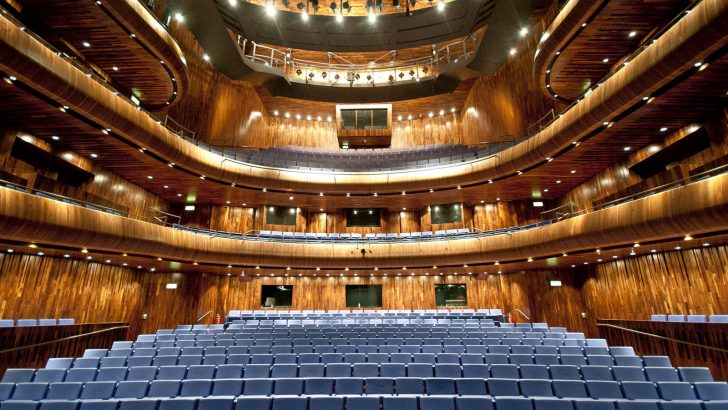Ireland’s October music calendar is usually dominated by events in Wexford and, happy to relate, following last year’s Covid restrictions, the curtain will rise again on the town’s international opera festival next week.
Reinstate
Running from Tuesday October 19 to Sunday October 31, festival director Rosetta Cucchi has managed to salvage her 2020 plans and reinstate Alfredo Catalani’s Edmea, first seen in Milan in 1886; Ambroise Thomas’ Le Songe d’une Nuit d’Été, premièred at the Paris Opéra-Comique in 1850 and Vincenzo Bellini’s I Capuletti e I Montecchi, dating from 1830 Venice.
In addition there will be two concert performances of Karl Goldmark’s Ein Wintermärchen while Andrew Synnott’s chamber piece, The 47th Saturday, salutes the contemporary world. Based on a short story by William Trevor, its world première takes place at Green Acres Restaurant on Monday afternoon October 25 with a repeat on Thursday October 28.
Dublin-based Synnott has recently been appointed festival chorus master and is its first artist-in-residence. No stranger to Wexford, his operas The Dubliners (2017) and La Cucina (2019) have been produced there and his What happened to Lucrece was streamed in collaboration with the festival’s young singers’ Opera Factory project last year.
The idea of a festival in Wexford stemmed from a November 1950 meeting between English-born Scottish writer Compton Mackenzie (1883-1972), possibly best known for his novel Whisky Galore, and one of Wexford’s respected general practitioners, Dr Tom Walsh (1911-1988). Besides his medical expertise, Tom Walsh was a remarkably knowledgeable opera enthusiast who studied singing under Adelio Viani at the RIAM.
Reviving
With the idea of reviving neglected and forgotten works, Dr Tom formed an organising committee with a group of friends and the first Wexford festival brought Michael Balfe’s The Rose of Castile to the bijou Theatre Royal on October 21, 1951. From humble beginnings, the festival’s prestige now enjoys worldwide recognition.
Dr Walsh held the artistic director’s reins until his retirement in 1967 but not before a significant production of Massenet’s Don Quichotte brought the Irish debut of Vienna-born conductor Albert Rosen. He would later conduct a further seventeen operas in Wexford and become principle conductor of the RTÉSO.
Then working with Glyndebourne Touring Opera, Brian Dickie replaced Dr Tom and would remain until 1974 when Scottish Opera’s Thomson Smillie took charge. Following his move to Kentucky Opera in 1978, Wexford’s artistic directors have included producer Adrian Slack; Elaine Padmore, who worked for BBC Radio 3 and would leave Wexford after thirteen years for Copenhagen and Covent Garden; director of Pesaro’s Rossini Festival, Luigi Ferrari, who enjoyed a nine-year tenure, and David Agler who guided the festival between 2005 and 2019.
Agler’s term included the building of Wexford’s new Theatre Royal on the site of the old one on High Street. Now called the Irish National Opera House, the acoustically clear auditorium opened in time for the 2008 festival with Rimsky-Korsakov’s Snegurochka (The Snow Maiden) under the baton of Dmitri Jurowski.
The current artistic director – Italian Rosetta Cucchi – has had an involvement with the festival since 1995 when she was appointed a répétiteur. I wish her every success.


 The National Opera House in Wexford.
The National Opera House in Wexford. 